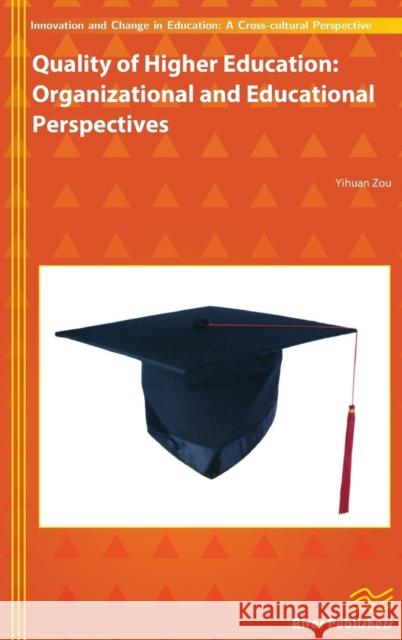Quality of Higher Education: Organizational and Educational Perspectives » książka
Quality of Higher Education: Organizational and Educational Perspectives
ISBN-13: 9788792982551 / Angielski / Twarda / 2013 / 194 str.
Quality of Higher Education: Organizational and Educational Perspectives
ISBN-13: 9788792982551 / Angielski / Twarda / 2013 / 194 str.
(netto: 453,56 VAT: 5%)
Najniższa cena z 30 dni: 453,32 zł
ok. 16-18 dni roboczych.
Darmowa dostawa!
Quality in higher education was not invented in recent decades - universities have always possessed mechanisms for assuring the quality of their work. The rising concern over quality is closely related to the changes in higher education and its social context. Among others, the most conspicuous changes are the massive expansion, diversification, and increased cost in higher education and the new mechanisms of accountability initiated by the state. With these changes, the traditional, internally enacted academic quality-keeping has been given an important external dimension - quality assurance - which requires higher education institutions to continuously demonstrate and improve performance and also provides new systems of rewards and sanctions. However, the complex impacts of quality assurance policies have shown a need to further understand the quality issue in higher education.
This book is about constructing a more inclusive understanding of quality in higher education through combining the macro, meso, and micro levels, i.e. from the perspectives of national policy, higher education institutions as organizations in society, individual teaching staff, and students. It covers both theoretical constructions for understanding quality and empirical investigation in the Chinese context. The questions addressed include:
- How is quality of higher education perceived by the institution, teaching staff. and students, respectively?
- What are the main concerns for the institution, teaching staff, and students in their own pursuit of quality?
It has been concluded that quality of higher education is not only about educational quality but also about expanding the life chances for the students, the prosperity in the administrative system for the teaching staff, and the organizational prosperity for the institution. With regard to quality assurance and accountability in higher education, special attention should be given to the values pursued and to providing a careful balance between immediate, single-value efficiency and sustainable development and a wider-range of values that higher education serves.
Quality in higher education was not invented in recent decades - universities have always possessed mechanisms for assuring the quality of their work. The rising concern over quality is closely related to the changes in higher education and its social context. Among others, the most conspicuous changes are the massive expansion, diversification and increased cost in higher education, and new mechanisms of accountability initiated by the state. With these changes the traditional internally enacted academic quality-keeping has been given an important external dimension - quality assurance, which requires higher education institutions to continuously demonstrate and improve performance, and which also provides new systems of rewards and sanctions. However, the complex impacts of quality assurance policies have shown a need to further understand the quality issue in higher education.This book is about constructing a more inclusive understanding of quality in higher education through combining the macro, meso and micro levels, i.e. from the perspectives of national policy, higher education institutions as organizations in society, individual teaching staff and students. It covers both theoretical constructions for understanding quality and empirical investigation in the Chinese context. The questions addressed are: How is quality of higher education perceived by the institution, teaching staff and students, respectively? What are the main concerns for the institution, teaching staff and students in their own pursuit of quality? It has been concluded that quality of higher education is not only about educational quality, but also about expanding life chances for the students, prosperity in the administrative system for the teaching staff,and organizational prosperity for the institution. With regard to quality assurance and accountability in higher education special attention should be given to the values pursued and be careful to balance between immediate, single-value efficiency and sustainable development and a wider-range of values that higher education serves.











